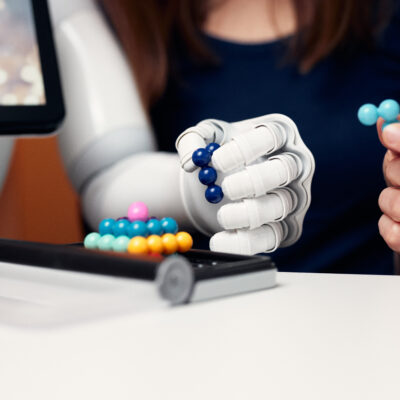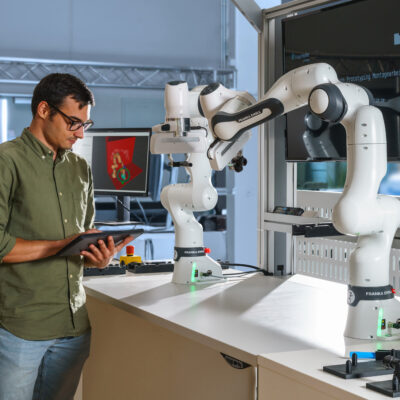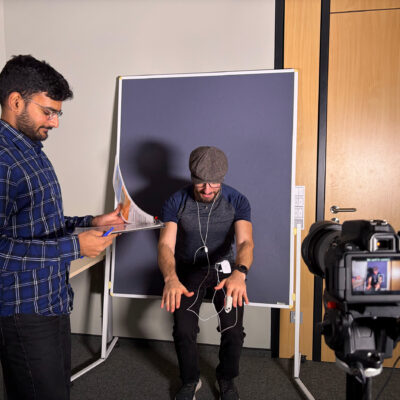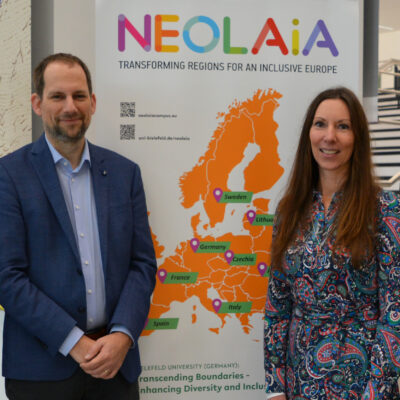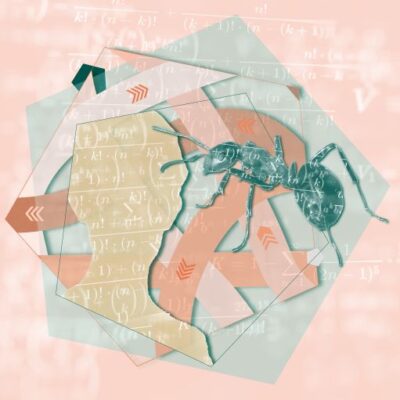After three years of research, the DataNinja research training group is taking stock of the team of doctoral students and established scientists who worked on trustworthy AI systems and their embedding. At the final conference ‘sAIOnARA’ from 25 to 27 June, scientists and industry experts will discuss the developments of the 18 doctoral students of the research group. Nine universities and colleges in North Rhine-Westphalia are cooperating in the research training group, which is coordinated by Bielefeld University. The conference in the CITEC building at Bielefeld University will bring together up to 130 participants from the fields of computer science, linguistics and engineering every day.
‘Our research shows that AI systems can not only be powerful, but also transparent and robust,’ says Professor Dr Barbara Hammer from the Faculty of Engineering at Bielefeld University. She heads the inter-university Research Training Group. ‘Thanks to the Research Training Group’s initiative, it was possible to bring together AI researchers from all over North Rhine-Westphalia and several collaborations were established beyond the project.’
DataNinja is funded by the Ministry of Culture and Science of the State of North Rhine-Westphalia. Gonca Türkeli-Dehnert, State Secretary in the Ministry: ‘The density and quality of outstanding AI research at numerous university locations and non-university institutions here in North Rhine-Westphalia are unique in Europe. Artificial intelligence is already an integral part of our everyday lives and makes people’s lives considerably easier. Our focus on ethical values sets us apart from other regions of the world and the big tech companies. With the cross-location research training group, we are networking a strong young scientific scene that will further advance AI research in North Rhine-Westphalia!’
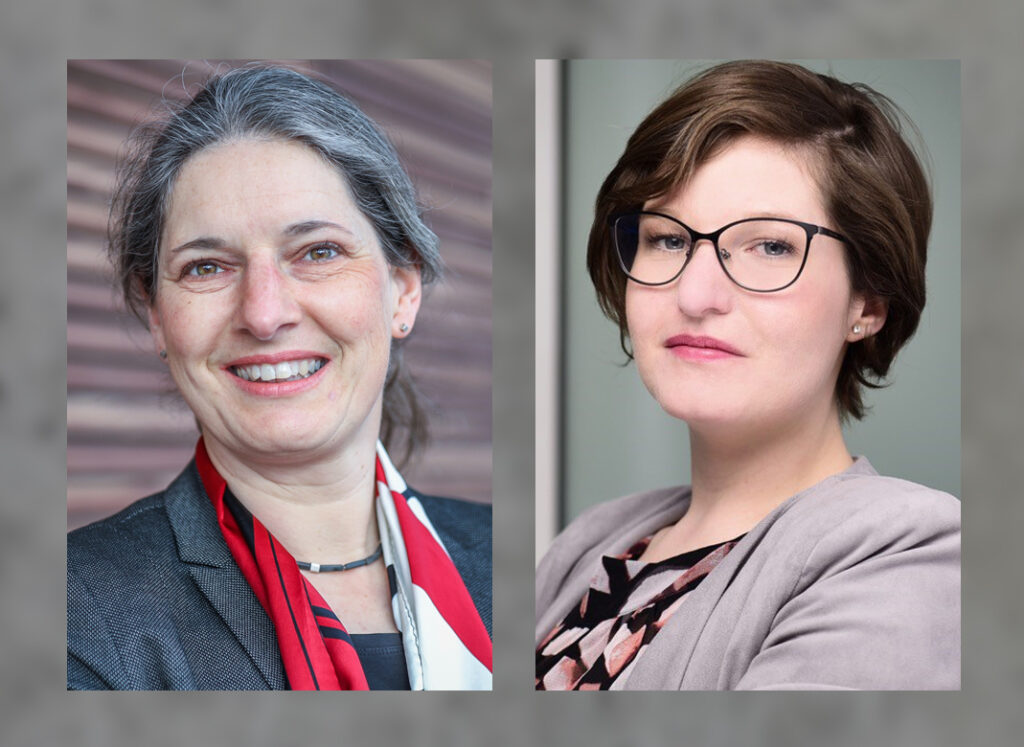
© Photo left.: Bielefeld University/Sarah Jonek, Photo right: Studioline Photostudios
Practical successes: from online shopping to medical technology
The research group is coordinated by Dr Ulrike Kuhl, who is also organising the three-day conference. ‘Developments from DataNinja research are being trialled and applied in medicine, education and industry in particular,’ reports Kuhl. ‘Our research teams have developed concrete solutions that advance companies and research alike.’
The DataNinja researchers have made progress on these topics, for example:
- The ML4ProM project developed AI-supported programmes for transparent purchase recommendations in online shopping.
- In NireHApS, ‘RAVSim’ was launched – a tool for the simple creation of large image data sets and fast quality tests for AI algorithms.
- The RoSe project developed wearable sensors for medical applications, including a self-adapting exoskeleton and an intelligent insole.
‘These projects are examples of how AI systems can be made more robust, transparent and ethically justifiable,” says Barbara Hammer.
Strengths and limitations of today’s AI systems
The conference programme includes seven keynote speeches by renowned scientists, presentations by DataNinja doctoral students and researchers funded by the AI Starter funding line of the state of NRW. In addition to the specialist presentations, there will also be a panel discussion entitled ‘AI – Needs and Risks’. Junior scientists from all over North Rhine-Westphalia will give presentations at a poster session on current research results.
The first day is dedicated to current developments in trustworthy artificial intelligence (AI). One of the keynote speeches will be given by mathematician and Humboldt Professor Dr Holger Hoos from RWTH Aachen University. He will discuss the fundamental strengths, weaknesses and limitations of current AI systems. On the second day, the focus will be on the challenges and opportunities of AI in North Rhine-Westphalia. The focus will then also be on large language models (LLM) such as ChatGPT. Computer scientist Professor Dr Lucie Flek from the University of Bonn will talk about perspective taking in large language models. The conference will end with an award ceremony for outstanding posters.
In order to make the findings publicly accessible, the DataNinja organisers are planning a results platform with a science blog, interactive applications and explanatory videos.
[Translation generated with automated support]
